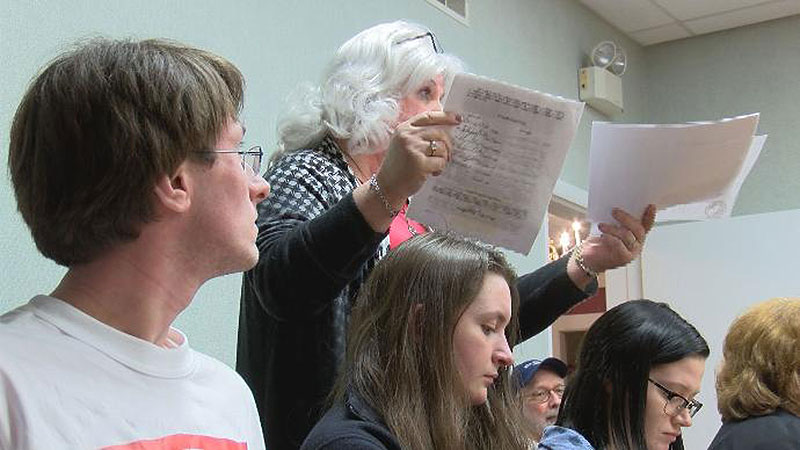The “VCode” itself is described as an end-all tech that can store every sensitive detail about your life using military-grade encryption software.
The company states that the technology will “allow” people to go back to work “safely,” suggesting the technology could be mandatory in order to return to work.
“As a secure Digital Health Passport, COVI-PASS™ links and displays a certified Covid-19 test result to the user’s Health and Immunoresponse, using a secure biometric gateway, allowing individuals to return to work and life safely,” the website states.
“COVI-PASS™, biometrically accessed on a mobile phone, or held on a key fob or RFID, provides a unique authenticated gateway for Government / Health Services and Businesses to ensure a safe work environment.”
“Redstrike Group and its partner, Manchester-based cyber-security firm VST Enterprises, is delivering ground-breaking digital passport solution to governments, healthcare organizations, sports federations, leagues and clubs around the world. The VCode Digital Health Passport enables individuals who have been officially tested to start returning to work and daily activities in a safe and secure environment.”
“And some people have proposed allowing phones to detect other phones that are near them by using Bluetooth and emitting sounds that humans can’t hear. If someone tested positive, their phone would send a message to the other phones, and their owners could get tested. If most people chose to install this kind of application, it would probably help some.”
There has never been a greater opportunity to deploy one vaccine against so many people. So it’s certainly not out of line to consider a “dual use.”
I have already covered the devastating effects of experimental RNA/DNA vaccine technologies—both of which could be launched with a COVID vaccine. Putting that aside for the moment, could the vaccine serve another purpose?
In this article, I raise questions. Questions about the potential covert use of nanotechnology in the COVID vaccine.
From lexico.com: nanotechnology: “The branch of technology that deals with dimensions and tolerances of less than 100 nanometers, especially the manipulation of individual atoms and molecules.”
Are researchers interested in marrying nanotechnology and vaccines?
Here is a quote from Frontiers in Immunology, January 24, 2019, “Nanoparticle-Based Vaccines Against Respiratory Viruses”: A new generation of vaccines based on nanoparticles has shown great potential to address most of the limitations of conventional and subunit vaccines. This is due to recent advances in chemical and biological engineering, which allow the design of nanoparticles with a precise control over the size, shape, functionality and surface properties, leading to enhanced antigen presentation and strong immunogenicity. This short review provides an overview of the advantages associated with the use of nanoparticles as vaccine delivery platforms to immunize against respiratory viruses…” [such as the purported COVID-19 virus?]
Here is another quote, also from Frontiers in Immunology, October 4, 2018, “Nanoparticle Vaccines Against Infectious Diseases”: In the last several years, the use of nanoparticle-based vaccines has received a great attention to improve vaccine efficacy, immunization strategies, and targeted delivery to achieve desired immune responses at the cellular level…Nanocarriers composed of lipids, proteins, metals or polymers have already been used…This review article focuses on the applications of nanocarrier-based vaccine formulations and the strategies used for the functionalization of nanoparticles to accomplish efficient delivery of vaccines in order to induce desired host immunity against infectious diseases.”
There can be no doubt that nanotechnology is, indeed, very much involved in cutting-edge vaccine research.
Now let’s shift into another use of nanotech.
Here are astonishing quotes from the journal Nano Today, from a 2019 paper titled: “Nanowire probes could drive high-resolution brain-machine interfaces.” Its authors are Chinese and American:
“…advances can enable investigations of dynamics in the brain [through nano-sensor-implants] and drive the development of new brain-machine interfaces with unprecedented resolution and precision.”
“…output electrical signals of brain activity or input electrical stimuli to modulate brain activity in concert with external machines, including computer processors and prosthetics, for human enhancement…”
Aside from research into prosthetics and, perhaps, the reversal of certain paralyses, this avenue of investigation also suggests “modulation” of the brain remotely connected to machines, for the purpose of control.
Modulation…such as control of basic thought-impulses, sensations, emotions?
ONE: Nano-sensors, implanted in the body and brain, would issue real time data-reports on body/brain functioning to ops centers.
TWO: And from those ops centers, data—including instructions—would be sent back to the nano-sensors, which would impose those instructions on the brain and body.
If this seems impossible, consider nanotech research aimed at improving the use of prosthetics. In that field, imposing instructions on the body/brain appears to be the whole point.
The question is: how far along the road of development is this technology? I can only say we are seeing the public published face of nanotech. What lies behind it, in secret research, is a matter for estimation and speculation.
I offer one speculation: the “promotion” of the social agenda of collectivist thought, through nanotech. Utilizing the Internet of Things, an attempt would be made to hook up and “harmonize” many, many brains with one another. Same basic feelings, same impulses—shared.
Who would be interested in such a program? Think Chinese government, DARPA (the technology arm of the Pentagon), and numerous other international actors. Think Rockefeller medical researchers. Think technocracy and Brave New World.
SUPPOSE, THROUGH A COVID VACCINE, NANOTECH COULD BE INSERTED INTO BODIES AND BRAINS OF THE GLOBAL POPULATION? As a grand control “experiment.” Is that too far-out an idea?
Here is an interesting quote from a 3/11/20 S&P Global article, “Early-stage nanotechnology poised for ‘inflection point’”:
“One of the most pressing global healthcare challenges in 2020 is the coronavirus outbreak and Moderna Inc….is on the front line of vaccine development for this new biological threat.”
“Moderna’s nanoparticle-driven science uses genetic engineering to trigger cells to create proteins that prevent certain infections. Its vaccines for Zika virus and influenza have already progressed to early clinical stages…”
If Moderna’s COVID vaccine is indeed using nanoparticles, I have not seen this mentioned in current press reports.
The S&P Global article states, “One of the leaders in the field of biological nanotech engineering is Massachusetts Institute of Technology professor Robert Langer, who has helped found about 40 companies based on technology created and developed in his Langer Lab…Moderna Inc., one of the companies Langer helped found…”
Does Moderna’s COVID vaccine use nanoparticles? If so, what can these particles actually do? These are pressing questions that need to be answered.
I offer two backgrounders I wrote several months ago. They involve the flood of highly significant scientific research across borders.
BACKGROUNDER ONE: Behind the explosive Charles Lieber nanotech scandal
Once upon a time, they called it espionage. Then they called it “illegal technology transfer.” Then they casually and admiringly called it Globalism.
Imagine this.
A cutting-edge technology, which has applications for weaponry, transportation, medicine, artificial intelligence, surveillance, mind control…is being openly shared between the US and China. And by implication, who knows how many other nations?
As just one example, tiny sensors would, up the road, be placed inside the human body. These sensors would automatically monitor and report thousands of changes, in real time, in the body—as a way of diagnosing diseases.
The sensors will transmit all this information, through the emerging Internet of Things—using the 5G pipeline—to medical centers—where AI corporate and government analysts will make the disease diagnoses and prescribe treatments.
Eventually, a few billion people (patients) would, through these sensors in their bodies, be hooked up to the 5G Internet of Things.
—HOWEVER, as I’ve reported many times in these pages, the standard definitions of diseases and disorders are often incorrect, or even invented. But because the future system I’ve just sketched is automated, the patient is enclosed in a fake and dangerous bubble. Among other problems, the disease treatments, the drugs and vaccines, are toxic.
What is the technology that is on the way to producing these body sensors?
Nanoscience. Nano-engineering.
From lexico.com: nanotechnology: “The branch of technology that deals with dimensions and tolerances of less than 100 nanometers, especially the manipulation of individual atoms and molecules.”
One of the leading nanoscience researchers in the world was recently arrested on a charge of concealing his connections to China.
Major US science star busted by the feds.
Charles Lieber, now suspended by Harvard, is the University’s chairman of the chemistry department.
I have read two articles from a foreign news outlet headlined with the claim that Lieber stole and smuggled the “new coronavirus” from the US to China. In both cases, the text of the articles mentioned nothing about such a theft. I’m not writing this article about “coronavirus.” I’ve been writing many articles rejecting the premise of an “epidemic” caused by the “virus.”
I decided to look into this situation, because Lieber does apparently have big-time connections to China. Sharing research on his specialty, nanoscience, with China would be one more case of “technology transfer.”
Bloomberg News, February 12, 2020: “Lieber’s arrest on Jan. 28 came in connection with his dealings in China. He hasn’t been charged with any type of economic espionage, intellectual-property theft, or export violations. Instead, he’s accused of lying to U.S. Department of Defense investigators about his work with the People’s Republic…”
“…by targeting Lieber, the chairman of Harvard’s chemistry department and a veritable ivory tower blue blood, prosecutors struck at the crimson heart of the academic elite, raising fears that globalism, when it comes to doing science with China, is being criminalized.”
“According to a government affidavit, signed by a Federal Bureau of Investigation agent named Robert Plumb, Lieber signed at least three agreements with Wuhan Technology University, or WUT, in central China. These included a contract with the state-sponsored Thousand Talents Plan—an effort by Beijing to attract mostly expatriate [Chinese] researchers and their know-how back home—worth a total of about $653,000 a year in pay [to Lieber] and living expenses for three years, plus $1.74 million [to Lieber] to support a new ‘Harvard-WUT Nano Key Lab’ in Wuhan. The government offered no evidence that Lieber actually received those sums… Lieber also deceived Harvard about his China contracts, the [federal] affidavit said.”
“Whatever extracurricular arrangements Lieber may have had in China, his Harvard lab was a paragon of U.S.-China collaboration. He relied on a pipeline of China’s brightest Ph.D. students and postdocs, often more than a dozen at a time, to produce prize-winning research on the revolutionary potential of so-called nanowires in biomedical implants. Dozens of Lieber’s 100 or so former lab members from China have chosen to stay in the U.S. Many now lead their own nanoscience labs at top universities, including Duke, Georgia Tech, MIT, Stanford, University of California at Berkeley, and UCLA.”
I’d say that’s a pretty big technology-transfer WOW right there.
“In the 1990s and 2000s, as Lieber’s achievements and stature were taking off, U.S. research institutions and grant makers pumped money and moral support into expanding the burgeoning collaborations between scientists in the U.S. and other countries, particularly China. The new paradigm was globalization, China was an emerging economic power, and Lieber’s lab became an exemplar of pan-Pacific collaboration. “
Another WOW. Not a leak of information. A flood.
“A more controversial Lieber protégé is Liqiang Mai, the international dean and chair of materials science at WUT, the little-known school in Wuhan that prosecutors allege recruited Lieber to be a ‘strategic scientist’ in 2011, for $50,000 a month. Mai, who hasn’t been named in any U.S. filings against Lieber, earned a doctorate at WUT in 2004 and worked as a postdoc in Lieber’s lab from 2008 to 2011, according to Mai’s WUT online bio….”
How big a star is Lieber? Wikpedia: “Charles M. Lieber (born 1959) is an American chemist and pioneer in the field of nanoscience and nanotechnology. In 2011, Lieber was recognized by Thomson Reuters as the leading chemist in the world for the decade 2000-2010 based on the impact of his scientific publications. Lieber has published over 400 papers in peer-reviewed scientific journals and has edited and contributed to many books on nanoscience. He is the principal inventor on over fifty issued US patents and applications, and founded the nanotechnology company Nanosys in 2001 and Vista Therapeutics in 2007. He is known for his contributions to the synthesis, assembly and characterization of nanoscale materials and nanodevices, the application of nanoelectronic devices in biology, and as a mentor to numerous leaders in nanoscience. In 2012, Lieber was awarded Israel’s Wolf Prize in Chemistry.”
Chemistry and Engineering News, January 28, 2020: “In addition, Lieber allegedly signed a contract that obligated Harvard to become part of a cooperative research program that allowed WUT [Chinese] scientists to visit the university up to two months each year. The [federal] complaint says he did not inform university officials of the agreement, which was for ‘advanced research and development of nano wire-based lithium-ion batteries with high performance for electric vehicles’.”
Another “technology transfer” of great value.
“…the NIH [US National Institutes of Health, a federal agency] asked Harvard about whether the university or Lieber failed to disclose his financial relationship with China. Lieber has been a principal investigator on at least three NIH grants totaling $10 million since 2008. After interviewing Lieber, Harvard [incorrectly, supposedly based on Lieber’s statements] responded to the NIH that he [Lieber] had ‘no formal association with WUT [Wuhan Institute of Technology]’ and ‘is not and has never been a participant in’ the [Chinese] Thousand Talents program.”
NIH has strict regulations about its researchers disclosing their conflict-of-interest connections. The feds obviously believe Lieber has failed to report his China connections to NIH. This would become a factor in his prosecution.
Lieber was operating a robust center at Harvard: Lieber Research Group. Its focus is nanoscience and nanotechnology. So it’s natural to ask, what kind of research findings would be shared with China?
On the Group’s website, there is this, right off the bat: “We are pioneering the interface between nanoelectronics and the life sciences…sensors for real-time disease detection…”
Hence, the picture of the future I sketched at the beginning of this backgrounder.
I may report further on nanoscience. Of course, the ominous technological innovations apply to both China and the US, and the rest of the world…
The Chinese government has the clout, will, force, and intent to impose, without hesitation, every sort of possible control on its 1.4 billion citizens. It is in the process of building many new “smart cities.” These centers will be models of wall-to-wall surveillance. AI, Internet of Things, 5G, the works. If nanoscience can achieve much more intimate access to people, through implanted sensors, why wouldn’t the Chinese government jump at the chance to deploy it? The rationale and the cover story are obvious: WE MUST HAVE EARLY KNOWLEDGE OF NEW VIRUS EPIDEMICS. WE WILL DETECT THEM DIRECTLY FROM THE BODIES OF OUR PEOPLE IN REAL TIME.
All hail, Globalism and technocracy.
BACKGROUNDER TWO: Nano-technology: one world, one brain
From lexico.com: nanotechnology: “The branch of technology that deals with dimensions and tolerances of less than 100 nanometers, especially the manipulation of individual atoms and molecules.”
The recent arrest of Harvard pioneer in the field of nanotechnology, Charles Lieber—on charges of lying to federal authorities about his business connections to China—has exposed wide-ranging relationships among American and Chinese researchers.
These relationships include, above all, the open sharing of sensitive technologies that, once upon a time, would have been considered closely guarded state secrets.
Here are quotes from the journal Nano Today, from a 2019 paper titled: “Nanowire probes could drive high-resolution brain-machine interfaces”. Its authors are Chinese and American:
“…advances can enable investigations of dynamics in the brain [through tiny sensor-implants] and drive the development of new brain-machine interfaces with unprecedented resolution and precision.”
“…output electrical signals of brain activity or input electrical stimuli to modulate brain activity in concert with external machines, including computer processors and prosthetics, for human enhancement…”
Aside from research into prosthetics and, perhaps, the reversal of certain paralyses, this avenue of investigation also suggests “modulation” of the brain, hooked to machines, for the purpose of control. Control of basic thoughts, sensations, emotions.
And along with the Internet of Things, why couldn’t that control eventually be extended, in order to “harmonize” many, many brains with one another?
Who would be interested in such a thing? Think Chinese government, DARPA (the technology arm of the Pentagon), and numerous other international actors. Think Rockefeller medical researchers. Think technocracy and Brave New World.
Over the past few decades, the flow of all sorts of ultra-sensitive scientific information, between the US and China, hasn’t consisted of rare leaks. It’s a flood, out in the open, in labs and universities. All part of the new share-and-care Globalist agenda.
Nanotechnology, to choose one branch of such research-exchange, has applications in weaponry, transportation, surveillance, medicine, etc. And of course, mind control.
“Look, I’m certainly willing to share my latest research on nano-brain implants. But I need your, ahem, assurance that your government won’t use this for dark purposes.”
“I understand completely. My government would no more do that than your government would.”
“All right. Then we’re good.”
“Yes. Good.”
How did US-China relations get to this point? At one time, it appeared the two governments were involved in a cold war. Oh, that’s right, President Nixon opened up China to trade, in 1972, after 25 years of no diplomatic relations. Nixon was the agent of David Rockefeller, who, years earlier, had rescued him from a broken career as a politician. David Rockefeller, arch Globalist.
Here’s what Rockefeller blithely wrote in 1973, a year after Nixon had worked his China miracle:
“Whatever the price of the Chinese Revolution, it has obviously succeeded not only in producing more efficient and dedicated administration, but also in fostering high morale and community of purpose. The social experiment in China under Chairman Mao’s leadership is one of the most important and successful in human history.” (“From a China Traveler”. NY Times. August 10, 1973.)
Millions of people dead, freedom crushed, a whole population under the boot of the Communist regime, but somehow that’s not what David Rockefeller saw, or pretended to see. He, like other of his elite Globalist colleagues, admired the Chinese government for the capacity to control its own people, to such a high degree.
Flash forward 47 years. Scientists from both countries are blowing each other kisses, as they collaborate on developing a technology that has the potential to gain intimate influence inside the human brain itself.
—Of course, remember, when political push comes to shove, and it always does, China is the friend of China. In the case of American corporate and government big shots, hometown loyalty tends to be conditional, depending on which sources and countries are putting money on the table.
SOURCES:
























